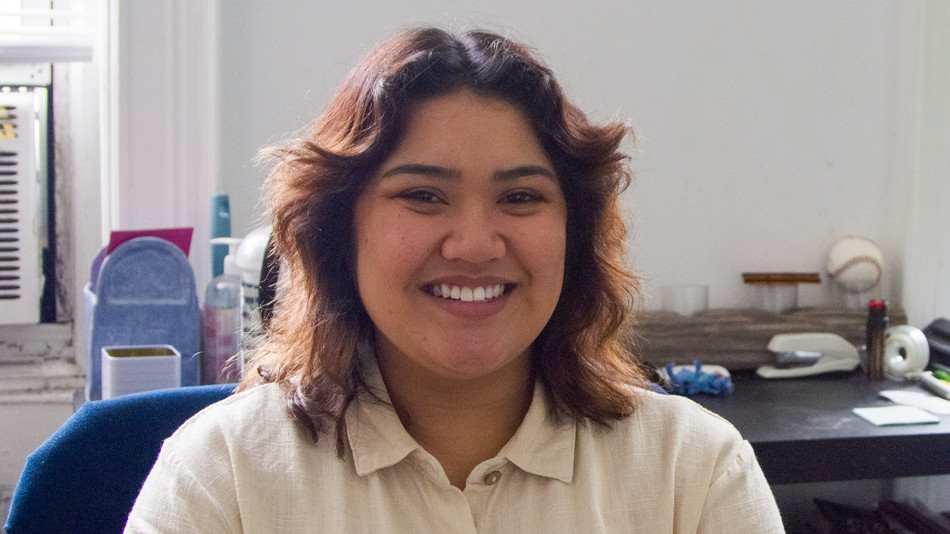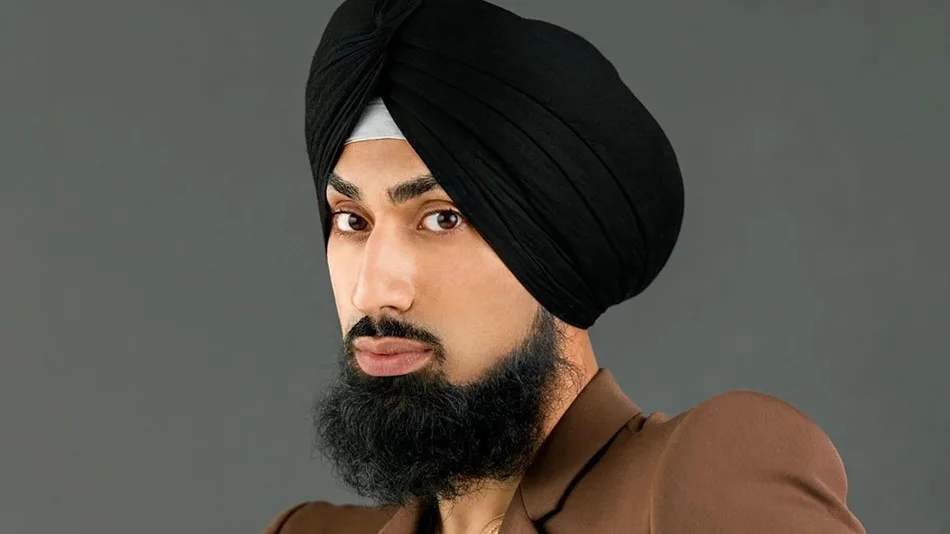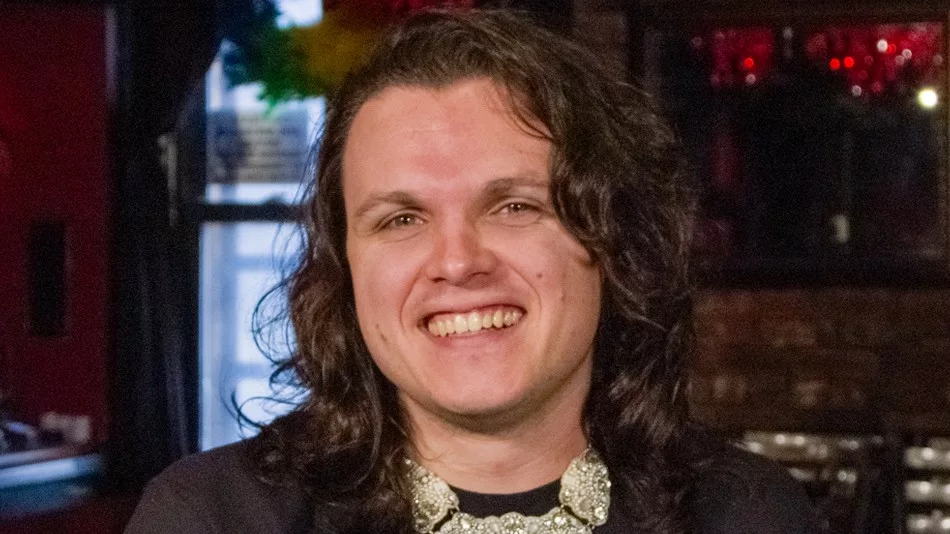Hey, I’m Paolo Lee, and I am from Glendora, New Jersey.
I’ve always been a musician. Music is in my family. I’ve been a singer-songwriter. I’ve learned how to play piano. But when I was in college, I was met with this decision of being more practical. So I did nursing for a while. Didn’t fail or anything. I was really good, but I just decided to transition into studying media and communications.
I was given the opportunity to take a course in queer representation. It was specifically called LGBTQ Representation in Media. Being in this course and being presented with queer representation and queer culture in radio and film and TV and in zines, I was enamored with what I was learning. And so it came to this point, later on in the semester, where I just felt like everything that I was learning, it had a disconnect within myself. I didn’t see myself capable or really worthy of representing myself or finding where I fit in this collection of queer artistry.
It was probably towards the end of the semester, maybe May of 2019. My professor, Dr. Adrian Shaw, was doing a project on queer history and gaming and virtual spaces. I read this catalog, and I was so enamored with the idea of agency and queer anonymity and how people were finding these spaces, regardless of their physical or geographical location. And so when we were talking at the end of the class, my professor made the joke of like, “If anybody makes it to Berlin, Germany,” which is where they were having an exhibition of this catalog, “make sure you send me a picture of when you’re there.” The exhibition was being held at the Schulz Museum, which was the oldest queer history museum in Berlin, Germany. And so I was kind of like, “Let me look into this.”
And so I looked into it, and I decided to study abroad at Temple Rome, because this was the closest option in Europe to being near Berlin.I would say maybe July of 2019, we were getting ready to go, and I was brought up with the first challenge in my decision to study abroad, with housing. I knew that I wanted to stay near campus, because it was a five-month study abroad trip, but I was a little bit hesitant of staying in a dorm, because it was predominantly straight cis men.
In end of July, August, getting ready to study abroad, we were actually supposed to be all joining a Facebook group message. And I just saw everybody talking about where they were going to stay, who they’re rooming with. So excited. All of this great energy. But I saw one post. Her name was Doriana, and she said, “Hey, I’m looking to do independent housing, because the student dorms aren’t the most gender-diverse or gender-inclusive.” So I sent her a direct message, and I was like, “Hey, I’m queer, and my mom’s Boricua, and I want to do independent housing. What’s good? And it was so funny, because immediately, she responded and was like, “Hey, I’m also Boricua. I’m also an artist, and I’m queer-identifying, and we should room together.”
So we study abroad. We get to Rome. We create truly a great partnership, a love, a safe and brave space in our apartment. I remember one night. We were like, “Hey, we want to do something queer.” We went out on one Saturday night. It was called Coming Out, and this bar was located basically behind the Coliseum. You can see it from the street in the front of the bar. And yeah, we went. It was a great time. We’re drinking. Everybody’s smoking in the street.
That same night, we were leaving the bar, going, doing our thing. And I was wearing these huge, huge heels. I had this long pea coat on. I was dressed, ready to go, and I was clacking down the street, feeling myself. And I remember I walked past these two guys that were just smoking a cigarette. And when I walked past them and I looked, they were both like, “Oh, que bello.”
After the fact, I found out that saying “que bello” to another man is more of a slur or a derogatory way of just jabbing at their femininity. Even in school, we were still faced with this level of displacement.
And so we were both taking a course in international communications, and I remember vividly. My professor, one time, was like, “Oh, I want to introduce you to our political science professor. I think you would really enjoy their work.” When I got there, it immediately became to this point of my professor being like, “Oh, you need to meet Paolo, because of his nails and his fashion and his hair and his makeup and all of these things that he does.” But not for the work that I was doing or for my commitment to the class or the projects that we were working on. I had to come to grips with the fact that I came here to really free myself from that experience that I had before I left, and I’m still faced with that in school, in the city, at the gay bars. Still faced with that internally, as well.
So as part of this study abroad experience, we were asked to represent ourselves and our identities through blog posts. We were writing about our experiences and really reflecting on how our identities influenced our time in Rome, but at the same time, how collectively, our experiences were shared.
I remember the first blog post that I wrote was about my name. My name is PAH-lo, but people in Italy were calling me POW-LO, so it was this whole understanding for myself to reflect on why I really felt so discouraged, because the way that people perceived me was not the way that I wanted to express or represent myself. And so, yes, I was writing about my name, but we also wrote other blog posts about food and culture, being in Rome, this understanding of gender, of language, of everything that I was writing. My queerness was intertwined with it, in everything that I was doing. And by the end of this blog storytelling project, I had a whole repertoire of my own writing and also just video and film, as well.
And so I think that when I understood that, that I had created my own representation and found my voice and navigated this space for my own terms, it was this full circle moment of, “I completed my intention from going to Rome in the first place.”
So when I got back, I was in my junior year now, and I was still studying media and production, but we had this course or this kind of programming, where you had to really pick your track. And I knew in that moment that it had to be music, because studying how queer representation in music was really not even explored, it made me understand that my purpose was to add to that. So I immediately started to write music. I wrote my first song, recorded my first song, performed it. And since then, it’s just completely altered the trajectory of my life as an artist.
I continue to write music. I’m working on producing my first EP, and everything that I produce now is coming from this queer perspective, of who I am and how I want to express myself. It’s inextricably infused in everything that I do and everything that I want to be.
And so I feel confident in the work that I’m doing, because it’s continuously informed by yes, my queer experiences, but at the same time, of my identity and how it relates to the culture around me. So I think that I’m really understanding now how my creative expression, my representation, my visibility, is through my own means. It’s through my own agency, and it’s been incredibly liberating.








Share